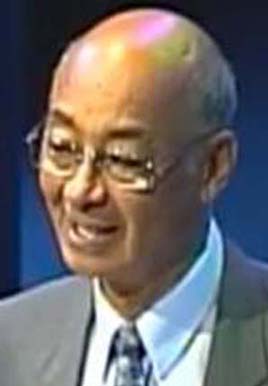By Dr. Rudi V. Webster
Ross Perot, a former United States presidential candidate once said that lack of leadership at the business and political levels is one of the biggest problems nations have in making themselves competitive and successful.
If leadership is that important, why is it so often missing in our governments and organizations? Who are the people who lead? What are their backgrounds, abilities and personal characteristics? What do they actually do? Should leadership just be the domain of the ministers, CEOs or a few top managers? What are the challenges and demands that they face? How do they tailor their actions and resources to fit those challenges? Why are some leaders more effective than others? How is leadership changing with time? And how can we alter our thinking about leadership to explain why it is so critical in today’s complex and intensely competitive world? These are some of the questions today’s leaders must answer in order to take their countries and businesses to higher levels of performance.
In recent times, researchers in cell biology and quantum physics, have examined in detail how cells receive and process information. They conclude that while genes and DNA influence the behaviour of cells, they do not control it. Instead, DNA is directed and controlled by signals in the environment.
Two new fields of science, signal transduction andepigenetics, shed light on the interaction between our genes, DNA and environment, and the role they play in the control of biology, behaviour and leadership. According to cell biologist Bruce Lipton, signal transduction recognizes that the fate and behaviour of an organism is directly linked to the way the organism sees or perceives its environment. Epigenetics is the science of how environmental signals select, modify and regulate the activity of the genes. He claims that our genes are constantly being remodeled by our life experiences and by energetic messages that emanate from our beliefs, thoughts and perceptions. He stresses that it is our cells awareness of the environment, not the genes that determines the character of our lives. He often repeats the interesting phrase, It’s the environment stupid.
In recent years, the environment in which governments and businesses operate has changed significantly because of intense competition and ever-increasing diversity and complexity. Business as usual might no longer be a good option and leaders must therefore adapt to this new environment if they wish to survive. They must review, and if necessary, change attitudes, priorities, strategies, policies and routine methods of thinking, governing and doing business. Today, we need more and better leaders and communicators; broad people with vision, self-confidence, general awareness and self-awareness; people who can transform attitudes, thinking and culture, and who can also manage the difficult but rewarding challenges of diversity and interdependence. Without these leaders we will not prosper.
In a recent interview, President Barack Obama said, “One of the things that Michelle figured out in some ways faster than I did was, part of your ability to lead the country doesn’t have to do with legislation, it doesn’t have to do with regulations, it has to do with shaping attitudes, shaping culture, increasing awareness.”
According to John Kotter of Harvard University, Figuring out the right thing to do in an environment of uncertainty caused by intense competitive activity, and then getting others, often many others, to accept a new way of doing things demand skills and approaches that most managers did not need in the relative calm of the past. It demands something more than technical expertise, administrative ability and traditional management. Operating in this new environment requires leadership.
This leadership must not be confined to the executive level; it should be present at virtually every level in the organization or government. A politician in Sri Lanka with whom I worked during his presidential campaign once asked me, Who is thus a great leader? He then answered by saying, A great leader is not one who says, I did this, I did that or I did everything. He is one who behaves in such a way that when at a particular time his people are asked, Who achieved these great things for you? They will answer and say, We did them together.
In today’s competitive and rapidly changing world the forces of growth, diversification, globalization and enormous technological change, especially in the areas of communication and social media, have increased the complexity of the organization and magnified the difficulty of leading that organization. The challenge for leaders in government and complex organizations can be overwhelming at times, particularly when pathological forces like apathy, greed, corruption, political infighting, conflicts of interest and bureaucratic obstacles get in the way.
The model below is something that today’s business and government leaders can follow to enhance performance. It consists of an agenda for change and the building of a strong network of people committed to the implementation of that agenda.
The leader must first create a clear vision of what he wants his organization to achieve and become and then repeatedly share that vision with his people to show them how they will benefit from making it a reality. He must also articulate the organization’s most important values, ensure that they are understood and accepted by people at every level in the organization and show by example what the organization really stands for. An intelligent strategy for achieving the organization’s vision is then put in place. This strategy must take into account all of the important environmental and organizational factors.
Second, the leader must build a strong implementation network and monitor its activities. He must create cooperative relationships with key sources of power that are needed to implement and follow through on his strategy. Last, but by no means least, he must spend time motivating his people and improving and monitoring teamwork.
The need for good leadership in business is probably more acute and more important than it has ever been.Too many organizations lack the leadership capacity to prosper in today’s world.





